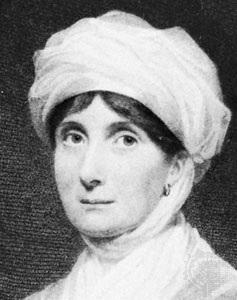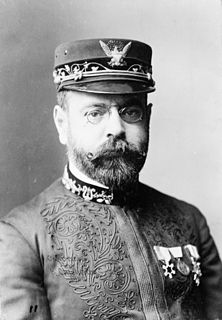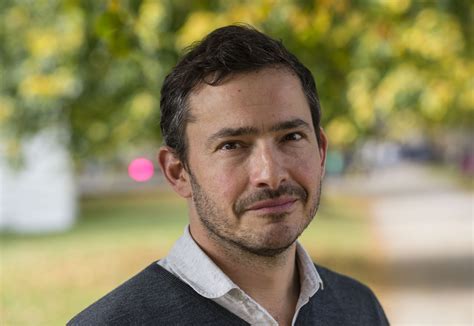A Quote by Johann Wolfgang von Goethe
Happy is it, indeed, for me that my heart is capable of feeling the same simple and innocent pleasure as the peasant whose table is covered with food of his own rearing, and who not only enjoys his meal, but remembers with delight the happy days and sunny mornings when he planted it, the soft evenings when he watered it, and the pleasure he experienced in watching its daily growth.
Related Quotes
The child begins life as a pleasure-seeking animal; his infantile personality is organized around his own appetites and his own body. In the course of his rearing the goal of exclusive pleasure seeking must be modified drastically, the fundamental urges must be subject to the dictates of conscience and society, urges must be capable of postponement and in some instances of renunciation completely.
Joy is not the same as pleasure or happiness. A wicked and evil man may have pleasure, while any ordinary mortal is capable of being happy. Pleasure generally comes from things, and always through the senses; happiness comes from humans through fellowship. Joy comes from loving God and neighbor. Pleasure is quick and violent, like a flash of lightning. Joy is steady and abiding, like a fixed star. Pleasure depends on external circumstances, such as money, food, travel, etc. Joy is independent of them, for it comes from a good conscience and love of God.
Gogol remembers having to do the same thing when he was younger, when his grandparents died...He remembers, back then, being bored by it, annoyed at having to observe a ritual no one else he knew followed, in honor of people he had seen only a few times in his life...Now, sitting together at the kitchen table at six-thirty every evening, his father's chair empty, this meatless meal is the only thing that seems to make sense.
Whenever the truth is uncovered, the artist will always cling with rapt gaze to what still remains covering even after such uncovering; but the theoretical man enjoys and finds satisfaction in the discarded covering and finds the highest object of his pleasure in the process of an ever happy uncovering that succeeds through his own efforts.
Freedom of Will-that is the expression for the complex state of delight of the person exercising volition, who commands and at the same time identifies himself with the executor of the order-who, as such, enjoys also the triumph over obstacles, but thinks within himself that it was really his own will that overcame them. In this way the person exercising volition adds the feelings of delight of his successful executive instruments, the useful underwills or under-souls-indeed, our body is but a social structure composed of many souls-to his feelings of delight as commander.
She bounded before me, and returned to my side, and was off again like a young greyhound; and, at first, I found plenty of entertaiment in listening to the larks singing far and near; and enjoying the sweet, warm sunshine; and watching her, my pet, and my delight, with her golden ringlets flying loose behind, and her bright cheek, as soft and pure in its bloom, as a wild rose, and her eyes radiant with cloudless pleasure. She was a happy creautre, and an angel in those those days. It is a pity she could not stay content.
It is no wonder if, under the pressure of these possibilities of suffering, men are accustomed to moderate their claims to happiness - just as the pleasure principle itself, indeed, under the influence of the external world, changed into the more modest reality principle -, if a man thinks himself happy merely to have escaped unhappiness or to have survived his suffering, and if in general the task of avoiding suffering pushes that of obtaining pleasure into the background.
Pleasure cannot be shared; like Pain, it can only be experienced or inflicted, and when we give Pleasure to our Lovers or bestow Charity upon the Needy, we do so, not to gratify the object of our Benevolence, but only ourselves. For the Truth is that we are kind for the same reason as we are cruel, in order that we may enhance the sense of our own Power.





































